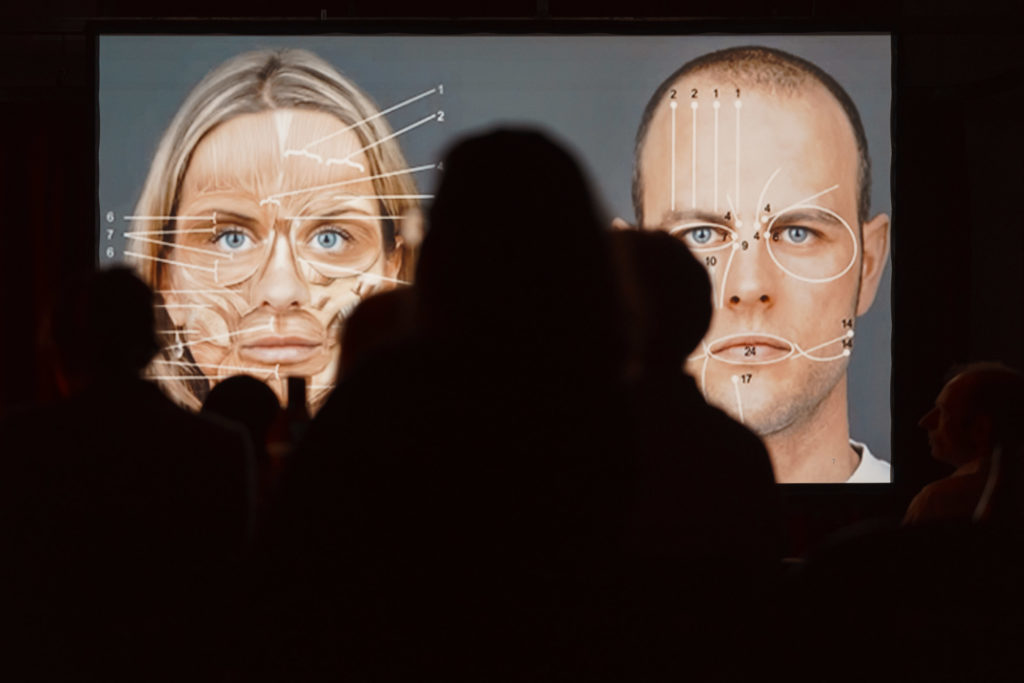On the 10th of April, the first TEDxZurich Salon of the year was held with approximately 125 curious participants, who got together at Papiersaal. The talks held by Steffen Konrath, Igor Susmelj and Nilson Kufus, discussed Artificial Intelligence (AI), the fears and benefits that come with it, data access, usage and protection, creation of fake content and ethics.
So, what can we expect from the future? The future will bring us AI that is able to not only describe people physically but also recognize their emotional state. The creation of believable fake videos, of faces of people who do not exist and a mirror world modelled more and more like ours. Hence the questions about the introduction of regulations and ethics, as a part of AI development, are particularly relevant right now.
At our Salon event on democracy, Elliot Ash discussed the possibility of a robot judge. It would be taught all the existing laws and cases, giving it the tools to make decisions autonomously through the accumulated knowledge. Similar questions were asked at this evening, including the idea of AI being used as a recruiter. On the one hand, this kind of use could represent an opportunity to eliminate racial, gender and any other biases that are innately human and make the process flawed. On the other hand, losing the opportunity to bond with the person in front of us does not sound appealing. Do we have to pay the price of eliminating humanity in order to counter existing biases and create fairer systems? Not necessarily. It is possible to use AI as a compass, by “feeding it the data” on our decision making, which it would analyse and use to detect any possible bias, allowing us to correct them.
The usage of data by smart-phones/homes/etc was another topic of concern during the discussion. Our behaviors, patterns and preferences are tracked and transmitted to companies, which later use it for product design, advertisement, market research and other purposes. Two of our speakers, Igor and Nilson, mentioned that we should have full transparency when it comes to data ownership, access and use. With the right regulations, in the future we will have the option to customize our data sharing preferences and in exchange for our input, we would get some kind of compensation. Whether it would be shares of the company, part of its profits or access to the products, we would get some kind of return for the value that, today, we create for free, while our personal data being twisted and used for various purposes. And this would hopefully enable us to have some kind of a weight and decision making power in steering the future of big data use, while protecting our privacy.
The development of technology, big data and AI is transforming our lives. Lines between what belongs to real and virtual world are becoming more and more blurry. The best way to prepare and go through this transition is to start implementing regulations, data protection rules and education, on what we can and should do with these fast-paced technologies. Our humanity, values and desire to create a better, fairer world should be at the center of these developments, as Igor mentioned “Without the correct ethics, who’s keeping me from doing something stupid?”
Picture by TEDxZurich Photographer Sören Funk
Picture License: CC BY-NC-SA (Attribution-NonCommercial-ShareAlike)
Attribution = Social Media @soerenfunk | Web www.soerenfunk.com





